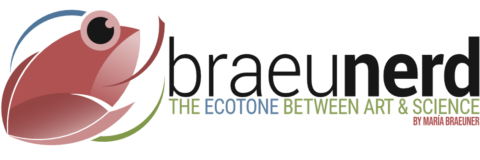In 1831, Charles Darwin left England onboard the HMS Beagle. It is said that he left a naturalist, only to come back five years later as a scientist. But this had nothing to do with what he did.
While the HMS Beagle traveled the world, other Natural Philosophers in England continued with their lives and work. This included, among other things, the meetings of the British Association for the Advancement of Science (today the British Science Association). There was one meeting in particular, in June 1833, that gave rise to the word “scientist”.
1830s
At that summer meeting, British poet Samuel Taylor Coleridge arrived just to say: “you must stop calling yourselves Natural Philosophers!”. He insisted that the men of science at that time were playing with dirt and electricity. They were empirical men of experimentation and not philosophers of ideas. He claimed that philosophers like himself were deep thinkers, while those who called themselves “Natural Philosophers” were performing “everyday labour” and getting their hands dirty.
William Whewell then stood up and proposed the term “scientist”—some claim that it was initially a joke—taking as an analogy the term “artist”. Whewell was considered a wordsmith. He was frequently consulted to come up with the new words for new concepts or discoveries in science. He coined the terms anode, cathode, ion, Pliocene, Miocene, Eocene, among others.

However, after Whewell’s intervention in 1833, later published anonymously in 1834 and then published with his name in 1840 (image above), the word was not immediately adopted. In fact, it would take over 50 years for it to catch on. Michael Faraday and Thomas Huxley themselves found the term “scientist” demeaning. These two continued to call themselves some type of “philosopher” until their dying days: experimental philosopher and natural philosopher, respectively. To quote Ross (1962): “An English man of science who called himself a philosopher now did so rather self-consciously, or hastened to qualify the name with the adjectives ‘experimental’ or ‘natural’.”
scientist Towards the end of the 1800s
In 1874, Alexander J. Ellis published a letter in the Academy claiming that the term “scientist” was “an American barbarous trisyllable” invention. We know it wasn’t, but this didn’t help the case for the word, since “Americanisms” were then also seen as “inferior” and “how dare you”. In the 1890s, the use of the word “scientist” in a Science-Gossip publication, by The Guardian, and by the London Daily News brought along many commentaries from the scientists of the time (natural philosophers, pardon me). Here a few examples:



Eventually, philologist Fitzedward Hall came to support the word “scientist” (after, apparently, having written to Science-Gossip, The Guardian, and the Daily News but “his communication never saw the light”). Needless to say, Hall was American. However, he had worked and lived in India and England for most of his adult life, received there an honorary doctor’s degree, and was well known as a scholar of English philology. Eventually, Hall wrote a whole defense of the word “scientist”. His arguments stripped the anti-American bias from the debate. It still took a while, but the word “scientist” eventually made it to the English dictionaries—and to the title of Thomas Huxley’s biography. Whoops.
All in all, we have had the word “scientist” for less than 200 years!
For centuries in the Middle Ages, it was the role of monks to document the natural world. They did this with a mix of observation and theological interpretation. Later, since the Renaissance and Enlightenment, empirical science was pursued as a hobby. Prior to that meeting in 1833, those who studied the natural world were “curious amateurs”—usually wealthy men able to observe and experiment without it being a paid job. Their exploration, undertaken to a big extent for pure curiosity, was considered one of the highest pursuits of knowledge. Don’t get me wrong: huge and wonderful contributions to science were made by these “hobbyists”. I’m just pointing out that science up to the early-1800s was still mostly an intellectual pursuit without monetary compensation, aligned with social prestige and, with some exceptions, part of elite circles.
The professionalization of science stemming from most of the English-, German-, and French-speaking world is generally considered to have begun only in the early-to-mid 19th Century. Scientific institutions and research were incorporated into universities. Science and scientists began to be seen as a full-time, trained and specialized profession backed by funding and institutional structures. And not only reserved for the elite anymore.
For a very in-depth exploration of this I highly recommend reading Scientist: The Story of a Word by Ross, S. (1962).
References:
- Ross, S. 1962. Scientist: The Story of a Word. Annals of Science 18:2, 65-85
- Ashworth, W.B. 2019. Scientist of the day: William Whewell. Blog from Linda Hall Library.
- NPR ShortWave interview. 2010. How the word scientist came to be.
Discover more from BraeuNERD
Subscribe to get the latest posts sent to your email.




